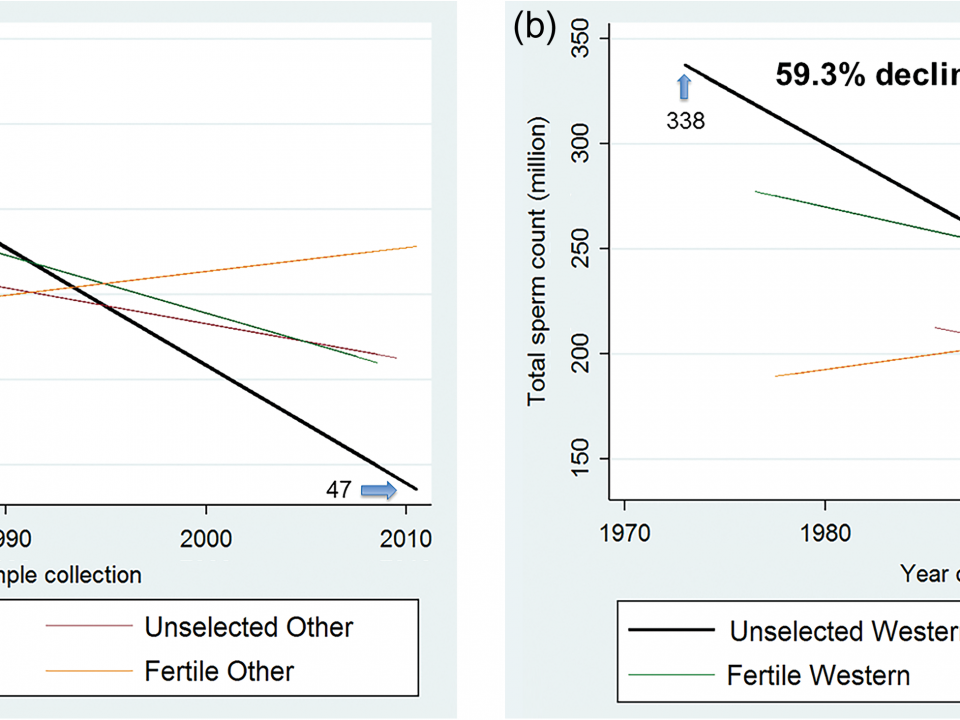Branched-chain amino acids alter neurobehavioral function in rats.
Obesity is associated with mood disorders, but underlying mechanisms are not well understood. We have recently described a strong association of branched-chain amino acids (BCAA) and aromatic amino acids (AAA) with obesity and insulin resistance. In the current study, we have investigated the potential impact of BCAA on behavioral functions. We demonstrate that supplementation of either a high sucrose or a high fat diet with BCAA induces anxiety-like behavior in rats compared to control groups fed on unsupplemented diets. These behavioral changes are associated with a significant decrease in the concentration of tryptophan (Trp) in brain tissues and a consequent decrease in serotonin, but no difference in indices of serotonin synaptic function. The anxiety-like behaviors and decreased levels of Trp in the brain of BCAA-fed rats were reversed by supplementation of Trp in the drinking water, but not by administration of fluoxetine, a selective serotonin reuptake inhibitor, suggesting that the behavioral changes are independent of the serotonergic pathway of Trp metabolism. Instead, BCAA supplementation lowers the brain levels of another Trp-derived metabolite, kynurenic acid, and these levels are normalized by Trp supplementation. We conclude that supplementation of high energy diets with BCAA causes neurobehavioral impairment. Since BCAA are spontaneously elevated in human obesity, our studies suggest a potential mechanism for explaining the strong association of obesity and mood disorders.
This study used rats and an unkown (to me) amount of BCAAs, so its validity to weightlifters and other humans who supplement with BCAAs is unknown. However, based on some other studies I’ve read, relatively small amounts of BCAA could do this. For instance: The effects of a branched chain amino acid mixture supplemented with tryptophan on biochemical indices of neurotransmitter function and decision-making.
We have previously shown that a 60-g mixture of branched chain amino acids (BCAAs) lowers the plasma availability of the catecholamine precursors tyrosine (TYR) and phenylalanine (PHE) and produces biochemical and neuropsychological changes consistent with impaired dopamine neurotransmission. However, the BCAA mixture also lowers the ratio of tryptophan (TRP) to BCAA which could impair brain serotonin function.
OBJECTIVES:
To determine the biochemical and neuropsychological effects of a BCAA mixture supplemented with TRP.METHODS:
We studied 32 healthy volunteers who were randomly and blindly allocated to either a single administration of amino acid mixture (60 g BCAA and 2 g TRP) or placebo. We carried out venous sampling to measure plasma levels of amino acids and performed selected cognitive tasks sensitive to monoamine manipulation 5 h after mixture ingestion.RESULTS:
Relative to placebo, the BCAA/TRP mixture substantially lowered the ratio of TYR+PHE:BCAA and increased plasma prolactin. The ratio of TRP:BCAA was also lowered but to a lesser extent. The BCAA/TRP mixture produced significant changes in a task of decision-making where volunteers showed reduced discrimination between gambles with large and small losses.CONCLUSIONS:
A 62 g BCAA/TRP mixture decreases the availability of TYR and PHE for brain catecholamine synthesis and increases plasma prolactin consistent with lowered brain dopamine function. Addition of 2 g TRP to the 60 g BCAA mixture does not prevent a reduction of the ratio TRP:BCAA relative to placebo. The effects of the BCAA/TRP mixture on decision-making suggest a general action of dopamine pathways on the processing of emotional information in risky choice, including punishment-related cues, consistent with suggestions that dopamine mechanisms mediate behavioural responses to aversive as well as appetitive stimuli in instrumental conditioning.
One might want to be careful when supplementing with BCAAs.









7 Comments
I have been going twice as anxious and depressed lately and it hasn’t crossed my mind at all it could be branched chain aa until I took two a moment ago and thought…hang on what if it’s these? And I find this webpage. What do you think? The emptiness and anxiety I have been feeling has been quite heavy for that last two Weeks, when I started taking amino acids daily.
I started developing OCD and anxiety symptoms a week after I started taking branch-chained amino acids and the symptoms also continued some time after I stopped thm.. It’s relieving to find scientific information that it’s possible for the BCAAs to contribute to the anxiety. I’m now focusing on as-natural-as-possible bodybuilding – meat, peanut butter, etc. and only occassionally a protein bar or something like that.
Hi there, I just experienced the same after taking BCAAs for 16 days. First depression followed by OCD and a panic attack that left me with continuous anxiety ever since. It’s been a month now since it all started. I wanted to ask you how long did the OCD symptoms last for until you went back to normal? Did you take any medicine or supplement? I am taking 5HTP which is slowly starting to work. Any advice will be greatly appreciated. Thanks!
Hi Dennis,
I have recently been experiencing difficulty anxiety/ falling asleep at night, and I was able to isolate the problem to work-out days. After doing a search on Pubmed, it appears the problem may be related to the 10g of branched chain aminos I take prior to my fasted workouts: see abstract below:
https://www.ncbi.nlm.nih.gov/pubmed/18577773
Funnily enough, I had already noticed that the problem was resolved by taking a 100mg 5-HTP tablet 1 hour before bed on work-out days (5-HTP is a precursor to Melatonin – which as well as promoting sleep apparently promotes anabolism following resistance training). The explanation is found in the pubmed abstract below: ie BCAAs and tryptophan (melatonin precursor) actually compete for a ‘ride in the taxi’ across the blood-brain barrier. This is why those people suffering from chronic fatigue syndrome (excessive tryptophan) benefitted from taking BCAAs. Conversely, those like me who find their sleep suffering need to stuff more tryptophan into the taxi at night! (see abstract below):
https://www.ncbi.nlm.nih.gov/pubmed/10721121
These two abstracts made everything clear for me, and as a result I will continue with my strategy of taking 100mg of 5-HTP before bed 3 times/ week on work-out days (just as a side-note, we can’t buy melatonin itself here in the UK, but apparently 5-HTP/ Vit B6 combination is just as good..)
Do you have any thoughts on this?
Hi Rob, it sounds like a great strategy to me. I’m just a little bit doubtful that the BCAAs are causing your anxiety and/or difficulty sleeping, but they could be. I find on a heavy workout day I sometimes feel a bit mentally sluggish; I merely wonder whether your problems aren’t more workout connected than with BCAAs. If you work out later in the day, that can cause trouble sleeping. I either work out first thing AM or finish no later than 2 PM. In any case, the mechanism of BCAAs and competition for tryptophan is well known, and if the 5-HTP works, go for it, I say.
Hi Dennis, my workouts are typically at 1pm – 2pm on Mondays, Wednesdays and Fridays. I do them fasted (having just taken the 10g BCAAs) so I don’t take my usual 4 x eggs for breakfast on those days, so again another cause of low tryptophan. I have just shaken things up a bit and moved to implementing Martin Berkhan’s ‘reverse pyramid training’ which is a little bit more demanding than what I was doing before (especially the 3 x sets of squats twice a week!) I had also just started supplementing 8g of glycine powder per day, and my difficulty getting to sleep seemed to start at exactly the same time as the glycine supplementation, but having scoured the web, I can’t find any credible source saying that glycine supplementation leads to insomnia – if anything the opposite should be the case.
By the way, I love the ‘clean’ style of your new website layout – but I do miss not having the box on the right showing the most recent comments, which I used to go into each day. Any chance of re-instating that one?
Rob, same here. everything I’ve read about glycine says it promotes sleep, though unfortunately it never promoted mine. Rcent comments – thanks for bringing that to me attention, I like it too. I’ll see if I can get it back – I’m paying a guy to do this stuff.
Update: Recent Comments widget restored!